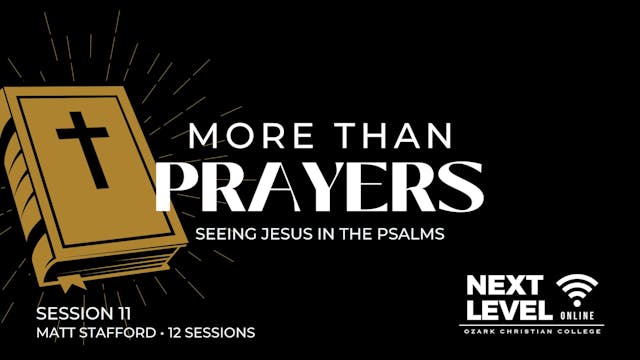Psalms of Cursing


The vision of Ozark Christian College is to glorify God by evangelizing the lost and edifying Christians worldwide. The mission of Ozark Christian College is to train men and women for Christian service as a degree-granting institution of biblical higher education.
Psalms of Cursing
Summary: When it comes to reading and interpreting the Psalms, some of the most problematic verses are those in which the psalmist prays that God would curse his enemies. In fact, some cite these as evidence that the Bible is not a holy book, given that it contains such violent language. The technical term for these curses is imprecation, although “psalms of anger” or “psalms of wrath” may be more descriptive. In this lesson, we’ll gain some perspective on these psalms and learn to pray them in light of the cross.
Notes:
THE PROBLEM:
INTERPRETING THESE PSALMS
already been poured out on Jesus Christ on the cross, which He willingly received.
Discussion:
Psalms of Cursing
Summary: When it comes to reading and interpreting the Psalms, some of the most problematic verses are those in which the psalmist prays that God would curse his enemies. In fact, some cite these as evidence that the Bible is not a holy book, given that it contains such violent language. The technical term for these curses is imprecation, although “psalms of anger” or “psalms of wrath” may be more descriptive. In this lesson, we’ll gain some perspective on these psalms and learn to pray them in light of the cross.
Notes:
THE PROBLEM:
INTERPRETING THESE PSALMS
already been poured out on Jesus Christ on the cross, which He willingly received.
Discussion:
© Live Church Solutions. All rights reserved.
